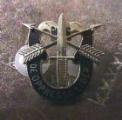Below is adequate evidence for a rational person to realize our military build up in the Pacific during the Cold War was directed against the USSR, and we were actually seeking a security agreement with China, we were not "containing" China, and we're not containing China now.
I'm glad we had this debate, because I found this relatively recent history very interesting, and in some ways we're repeating it. It is also interesting to see what our leaders were saying about the Asia-Pacific region a mere 30 or so years ago.
http://www.foia.cia.gov/docs/DOC_000...0000261343.pdf
AUG/SEP 84
Quite different than the U.S. containing China.The primary Soviet concern in East Asia is to achieve superior military power, and toward this end all other Soviet interests in the region – political, economic, and diplomatic – will be subordinated. The Soviets probably see increasing challenges, including an improving Sino-US relationship, growing Chinese military capabilities, intensified US pressure on Japan to assume a greater security role in northeast Asia, evolving Sino-Japanese trade and political ties, and a commitment by the United States to increase its military posture in the region.
The principle strategic objective of the Soviet Union in East Asia is to increase Soviet power while containing China and reducing US and Japanese influence.
In pursuit of their strategic objectives the Soviets will:
- Protect against Sino-Japanese-US strategic cooperation by striving for military advantage against such a worst case contingency.
http://www.usni.org/magazines/procee...liance-pacific
July 1987 (PACOM military leadership comments)
The old alliance systems for the area are weak and lack direction. The Southeast Asia Treaty Organization (SEATO), conceived before the Vietnam War, was finally dissolved on 30 June 1977. 1 The Australia-New Zealand-United States (ANZUS) Pact, dating from the immediate postwar era, appears to be finished, a victim of the Kiwis' angry withdrawal over the U. S. ship visit policy. Neither Japan nor China, each facing a significant Soviet threat, is involved in a regional security arrangement. Even the U. S.-Japanese security agreement, a cornerstone of regional security, faces continuing disagreement over spending levels and sea-lane defense.Other threats mentioned were North Korea and Vietnam, not China.Military Security for Ourselves and Our Allies: As Admiral James A. Lyons, Jr., the Commander-in-Chief of the U. S. Pacific Fleet, recently commented, "…the Soviet Pacific Fleet has increased from 200 ships in 1960 to over 500 today.” 5 With 1,000 land-based maritime bombers, major bases on their own coasts and in Vietnam, and a growing appetite for blue-water naval exercises, the Soviets now pose the principal military threat to Western interests in the region.
That hasn't changed.As Secretary of State George Shultz recently stated, the Pacific is "…one of the most heavily armed regions in the world, and Asian peace is still marred by continuing conflicts.”
http://www.dtic.mil/cgi-bin/GetTRDoc?AD=ADA436509China has played a dominant role in the region for centuries. Although it is a controversial choice for membership in the Pacific alliance, China can make an important and growing contribution in the Pacific Basin. The Chinese armed forces are limited by outdated technology but are maturing in military skill. Naturally, there are many issues that must be worked out between China and the alliance's more traditionally Western states. The Chinese, for example, have often commented publicly that they prefer a neutral course, and simply are not interested in a security arrangement with the United States or any other major power. Nevertheless, in light of the potential for increased Chinese economic involvement in the region, and growing Soviet naval presence in the Pacific, the Chinese may reconsider.
No surprise we have enduring interests in this critical region. It is important to point out that during the short lived Sino-Soviet block the U.S. did state it would contain that block (not China alone, only when they were affiliated with the USSR, or primary threat during the Cold War).The Soviet maritime, military presence in the Asian-Pacific region has increased dramatically in recent times. It encompasses a balanced tactical and strategic threat with formidable capabilities above, below, and on the surface of the Pacific. The modern Soviet Pacific fleet is its nation's largest, far larger than the U.8. Seventh Fleet, its likely rival.
Furthermore, the Soviet build-up has been qualitative as well as quantitative. The creation of a separate Far Eastern theater command organization in 1978 points to this direction. In the past eight years, the number of nuclear submarines has increased from 41 to 69, bringing the total number of general purpose submarines in the Pacific fleet to over i00. Major surface combatants have also increased from 64 to 84.






 .
.




Bookmarks